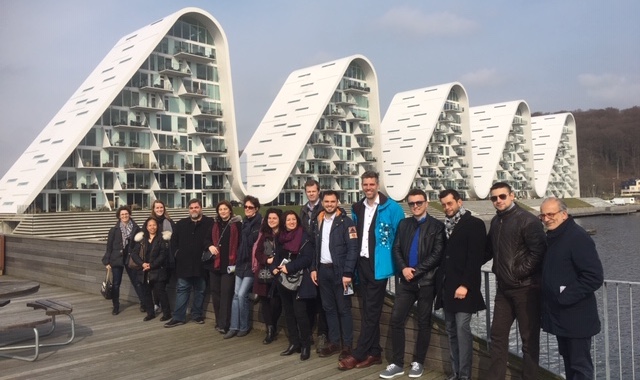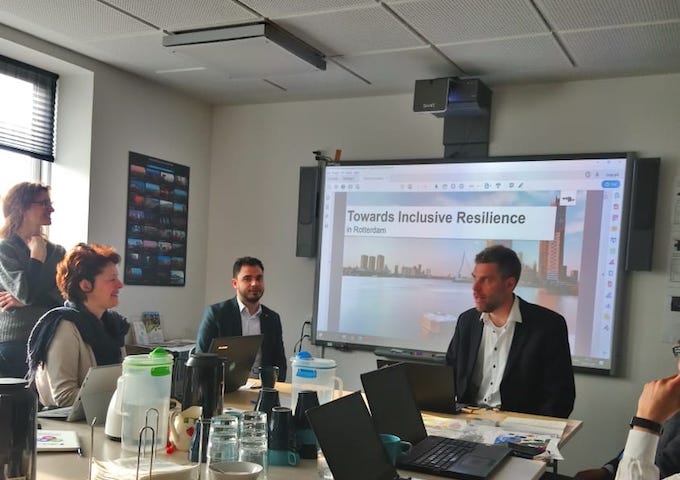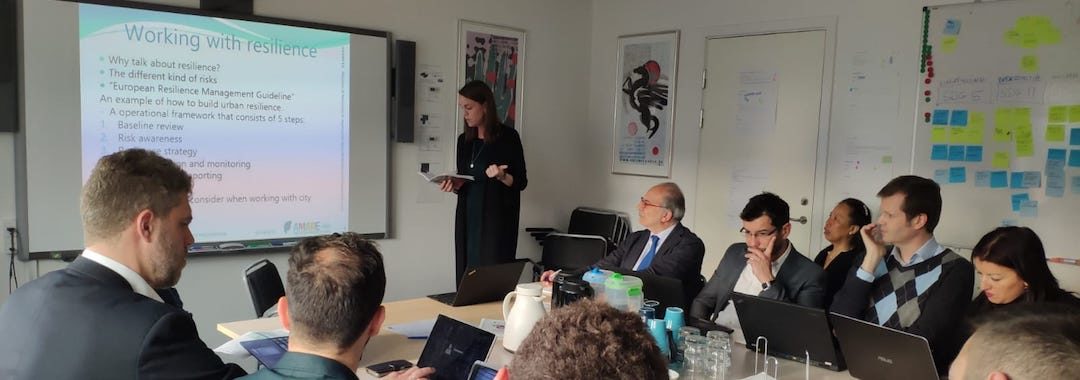The four pilot cities in AMARE-Eu project get ready to test the AMARE-Eu toolkit and receive advice on their work with urban resilience
The collaboration with the four pilot cities in AMARE-Eu, Rotterdam, Heraklion, Skopje and Catanzaro, was commenced at a partner meeting in Vejle in the beginning of April. The representatives from the four pilot cities gave an outline of the different cities’ challenges and needs in relation to resilience work. Afterwards, the group of partners behind the AMARE-Eu project presented the first draft of the Amare-Eu toolkit, which the pilot cities are going to test before it is finalized and accessible to the public.
The Amare-Eu tool kit
The Amare-Eu tool kit is targeted towards city managers and city administrators. The toolkit will help them build urban resilience. The material included in the toolkit has a special focus on non-native citizens since members of this group are at severe risk in case of natural and human-made disasters.
AMARE-Eu toolkit provides general recommendations and guidelines on how cities can work with resilience, ensuring the involvement of all citizens. This includes non-native citizens, who among other things and due to linguistic and cultural factors have specific needs in relation to emergency communication and emergency response.
The Amare-Eu toolkit has four sections:
- Working with resilience
- Working with non-native citizens
- Working with volunteers
- Tools and examples
During the test period, the toolkit will be adapted to the different needs of the four pilot cities. In order to target the different challenges of the cities, the toolkit will contain specific recommendations, guidelines and tools that are relevant to each pilot city and their specific situation.

Different challenges, but collective needs
The four cities have different challenges and different communities. Heraklion has to be capable of communicating with a wide range of tourists if an emergency occurs in summer season. Skopje is in need of securing a large group of non-native citizens, who are only in transit. Rotterdam and Catanzaro also have a great diversity of non-native communities, for instance Catanzaro’s many gypsy communities. Therefore, both cities have a specific focus on non-native citizens.

With regard to being a pilot city in the Amare-Eu project, common to all four cities is the wish to improve communication with the city’s different citizens, for instance via pictograms and other simple graphics: using means of communication that go beyond the language barriers encountered by non-native citizens will be a key approach to foster an inclusive resilience.
When the pilot cities are going to test the toolkit, they will get advice from the partners behind AMARE-Eu. This first phase of the guidance will be initiated in the end of April and will be finalized with an organized training in working with urban resilience. The training will take place at the end of June, in Bonn.
If you want to learn more about the AMARE-Eu pilot cities, you can find more information at the link below:

